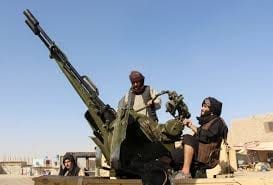Pakistan–Afghanistan Peace Talks Begin in Istanbul Amid Border Clashes

As hopes for regional peace flicker once again, Pakistan and Afghanistan have entered their third and potentially final round of peace talks in Istanbul, Turkey. The discussions, mediated by Turkey and Qatar, aim to de-escalate rising border tensions following weeks of deadly cross-border firing that has left dozens dead and several civilians displaced.
However, the talks have already been overshadowed by fresh border skirmishes, with both sides accusing each other of violating the ceasefire even as their delegations sat down to negotiate.
The Istanbul Peace Talks: A Fragile Beginning
Delegations from Islamabad and Kabul arrived in Istanbul this week to discuss a comprehensive truce and mechanisms to prevent future escalations along the Durand Line, the historically disputed border separating the two nations.
According to The Hindu and NDTV, Pakistan’s delegation, led by Defence Minister Khawaja Asif and senior intelligence officials, has emphasized “security concerns” linked to Tehrik-i-Taliban Pakistan (TTP) elements allegedly operating from Afghan soil.
The Taliban-led Afghan government, on the other hand, accused Pakistan of aggression and civilian targeting, warning that the “sovereignty of Afghanistan must be respected.”
“While negotiations have begun in Istanbul, Pakistani forces once again opened fire on Spin Boldak,” Taliban spokesperson Zabihullah Mujahid said on social media, condemning the attack as a “blatant violation” of the ceasefire understanding.
Ceasefire Violations and Civilian Toll
Despite the peace efforts, border towns such as Spin Boldak (Afghanistan) and Chaman (Pakistan) witnessed fresh artillery exchanges on Wednesday evening, as reported by Al Jazeera and India Today. At least five people, including civilians, were killed, and many more were injured.
Footage from the border region, shared widely on social media, showed civilians fleeing their homes amid explosions and shelling. Afghan authorities accused Pakistani forces of firing into residential areas, while Islamabad claimed its response was “defensive” after “provocations from across the border.”
A statement from Pakistan’s Ministry of Defence, cited by Dawn and Ahram Online, rejected Kabul’s accusations, asserting that its forces had “responded responsibly” to Afghan firing.
War of Words: Khawaja Asif’s Threat
The tension further escalated when Pakistan’s Defence Minister Khawaja Asif warned that if peace talks fail, “only war remains an option.”
His remarks, reported by NDTV and The Print, came just hours before the Istanbul meeting began. Asif accused the Taliban government of harboring TTP militants who have carried out terror attacks inside Pakistan, including in Khyber Pakhtunkhwa and Balochistan.
“If the Taliban leadership does not act decisively against terrorists using Afghan territory, we will defend ourselves,” Asif declared, adding that “Pakistan’s patience is wearing thin.”
Afghanistan’s leadership responded sharply, stating that “threats of war contradict the spirit of peace”, and that Pakistan must “address its internal issues instead of blaming neighbors.”
The Role of Mediators: Turkey and Qatar Step In
Turkey and Qatar, both long-standing diplomatic mediators in the region, have been playing a crucial role in facilitating dialogue between Islamabad and Kabul.
A Turkish Foreign Ministry official told Daily Sabah that Ankara’s aim was to “bring both sides to a sustainable truce agreement” and promote economic and security cooperation along the border.
Qatar’s envoy to Afghanistan also expressed optimism, stating that both nations must “prioritize regional stability over political narratives.”
Deep Roots of the Conflict
The Afghanistan–Pakistan conflict has its roots in border demarcation disputes and mutual mistrust dating back to the formation of modern Pakistan in 1947. The Durand Line, drawn during British rule, has never been formally recognized by Afghanistan, which sees many Pashtun-majority regions across the border as part of its traditional territory.
In recent years, the tension has intensified due to cross-border militancy, smuggling routes, and the rise of TTP attacks inside Pakistan, which Islamabad blames on Afghan-based operatives.
Analysts at the Middle East Institute and Eurasia Review have warned that a prolonged standoff could destabilize the entire South and Central Asian region, affecting trade corridors, refugee flows, and counterterrorism cooperation.
Regional and Global Reactions
India has been closely monitoring developments. Strategic expert Derek Grossman noted that “India is geostrategically wise to deepen ties with Afghanistan as Pakistan’s relations deteriorate further.”
China and Iran have called for restraint, urging both sides to pursue dialogue instead of escalation.
The United States, while maintaining limited involvement, expressed “concern over civilian casualties” and encouraged “constructive talks under Turkish mediation.”
Current Status: Talks Continue Under Strain
As of Friday morning, Dawn reported that the third round of talks is ongoing with “cautious optimism.” However, the border remains tense, and both sides have reportedly increased troop presence in Spin Boldak–Chaman and Torkham regions.
Observers believe the talks in Istanbul could be decisive for future relations between the two countries. A failure to reach consensus might push them toward a wider regional confrontation.
Conclusion: Between Truce and Trust
The Istanbul peace talks symbolize a fragile hope in a volatile region. Yet, the persistent mistrust, mutual blame, and border skirmishes underscore the deep divisions that have plagued Afghanistan–Pakistan relations for decades.
For genuine peace to emerge, both Islamabad and Kabul must not only cease hostilities but also build institutional trust through intelligence cooperation, trade frameworks, and people-to-people engagement.
As one Turkish diplomat aptly put it —
“Peace cannot be negotiated while the guns are still firing.”
Press Release on Our All Websites for Powerful Online Presence
Get your brand featured with a world-class press release, published across all our high-authority websites — complete with powerful do-follow backlinks. Crafted to meet global press release standards, our service ensures maximum credibility, visibility, and SEO impact. Special pricing and exclusive offers are available for a limited time. Contact us today at sunil@justbaazaar.com to elevate your brand’s presence."
Created with © systeme.io









